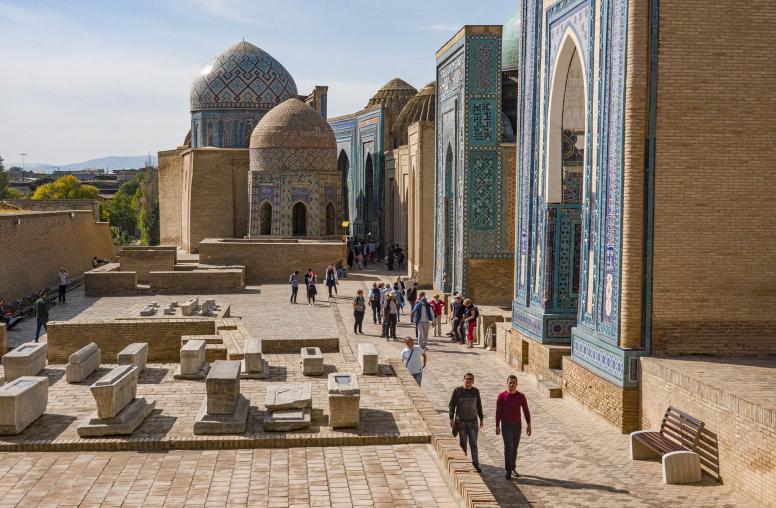Research & Analysis
U.S. Institute of Peace’s articles, reports, tools and other features provide policy analysis, research findings, and practitioner guides. These publications examine critical conflict issues at the center of the Institute’s work to prevent and resolve violent conflict.
The views expressed in these publications are those of the author(s).

Does the ICC’s Request for Warrants Against the Taliban’s Leaders Matter?
The International Criminal Court’s chief prosecutor announced on January 23 that he had requested arrest warrants for the Taliban’s leader, Haibatullah Akhundzada, and its chief justice, Abdul Hakim Haqqani, for being “criminally responsible for persecuting Afghan girls and women.”

Failure to Protect: The Taliban’s Reversal of Violence Against Women Protections
Before the Taliban's return to power in 2021, Afghanistan had made strides in combating gender-based violence (GBV) — starting with the implementation of frameworks that criminalized acts such as forced marriage, underage marriage, rape and intimate partner violence.

Understanding the Implications of the Taliban’s Opium Ban in Afghanistan
The Taliban’s opium ban, coupled with Afghan farmers’ replacement of poppy largely with low-value wheat, is likely to worsen dissatisfaction and political tensions. The Taliban’s persistence in enforcing the ban has been notable, especially in 2024. If the ban remains in place, it would demonstrate the regime’s strength but also worsen rural poverty, increase dissatisfaction among landholders and spur political instability. This will likely lead to increased humanitarian needs and more pressures for outmigration to nearby countries and beyond, both of which are of interest to the U.S. and other Western countries. Conversely, if the ban weakens in response to pressures and resistance, a revival of widespread poppy cultivation could undermine the regime’s authority. Aid alone will not offset the economic shock of the ban, nor stimulate the long-term growth needed to effectively combat the opium problem.

How Afghanistan’s Economy Can Survive Shrinking Shipments of U.N. Cash Aid
Afghanistan’s precarious economy is facing a new set of multidimensional risks as humanitarian aid — delivered in massive shipments of U.S. cash dollars — shrinks rapidly amid competing demands from other crises around the world. The dollar inflows, moved under U.N. auspices, have helped stabilize the Afghan economy, cover its mammoth trade deficit, and inject monetary liquidity into commerce. With much smaller cash infusions, in line with a general reduction in aid, the suffering of Afghanistan’s poverty-stricken population is likely to increase.

Religious Leaders, Civil Society Oppose Taliban’s Vice and Virtue Law
The Taliban’s new vice and virtue law, which places sweeping restrictions on women’s dress, mobility and public presence, is facing pushback from Afghan religious scholars, civil society, the wider Muslim community and even the Taliban themselves.

Where is Afghanistan Three Years into Taliban Rule?
Lacking formal recognition from all member states, the Taliban will not be present at the U.N. General Assembly next week. Their absence speaks volumes about how the international community struggles to constrain a regime that has repeatedly defied U.N. treaties, sanctions and Security Council resolutions. Three years into Taliban rule, the Afghan people are beset by a host of human rights, economic and humanitarian challenges, with women and girls particularly impacted. Meanwhile, the international community still has no clear approach to dealing with the Taliban, with the regime rejecting a U.N. Security Council resolution calling for a special envoy to develop a roadmap for normalizing Afghanistan’s relations with the international community.

What an ICC Case on Mali Means for Taliban Crimes Against Women
Since the Taliban took power in August 2021, the situation for Afghan women and girls has dramatically deteriorated. Yet there has been little international action, as many in the international community lament the lack of legal, and other, avenues to hold the Taliban accountable for these draconian measures. However, a recent case at the International Criminal Court (ICC) may provide a legal roadmap to prosecute the Taliban.

China’s Global Security Initiative: Tilting the Balance in Central Asia
In recent years, Beijing has been reevaluating its conceptual framework for foreign policy, with a focus on enhancing its role in global governance. With the aim of transforming China into the world's leading country, Chinese leader Xi Jinping has put forward a number of new initiatives — including the Global Security Initiative (GSI) — as a way of creating new formats of cooperation between China and the countries of the Belt and Road Initiative (BRI) and Global South.

What’s Next for the U.N.’s Doha Process on Afghanistan?
At the end of June, envoys and representatives from more than 25 countries and international organizations gathered in Doha, Qatar, along with representatives from the Taliban under an U.N.-facilitated framework. This meeting was the third of its kind, widely referred to as “Doha 3,” and part of a process to establish a more coordinated and coherent global approach to Afghanistan’s challenges and the Taliban’s rule.

How to Support Female Entrepreneurs in Afghanistan
Potential areas of cooperation between the Taliban and the international community, such as private sector development and alternative livelihoods to now-banned opium poppy cultivation, will be on the agenda at a meeting of international envoys for Afghanistan hosted by the United Nations in Doha from June 30 to July 1. Discussions on women’s rights are not included, as the Taliban consider it an internal matter. This is ironic, given that the private sector is one area where the Taliban allow limited women’s participation.